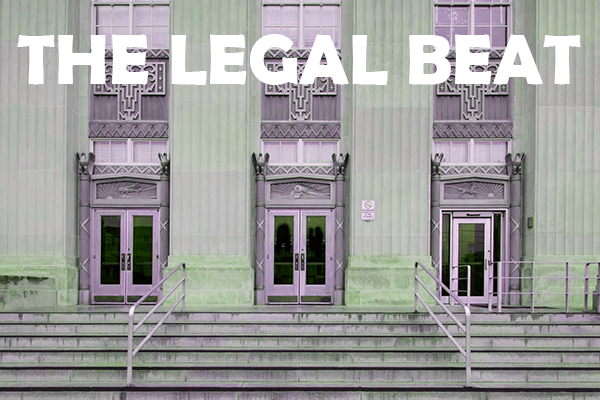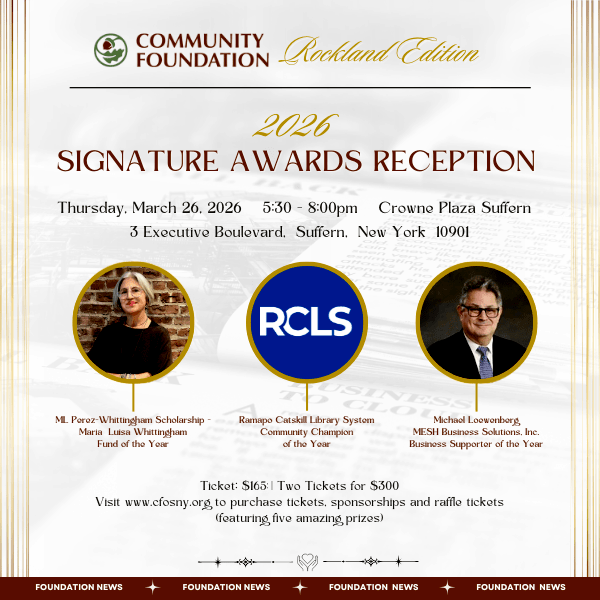|
RCBJ-Audible (Listen For Free)
|
Rockland County Supreme Court Justice Thomas Zugibe Says NY’s anti-SLAPP Statute Requires, Rather than Merely Permits Recovery of Costs and Attorneys’ Fees
After three years of contentious litigation that effectively drove Rockland Cider Works off the Van Houten family farm property in Orangeburg to Gilboa in the foothills of the Catskill Mountains, Rockland County Supreme Court Justice Thomas Zugibe cleaned up what remained of the core issues in the case and awarded the cidery’s neighbors some of their attorney’s fees.
Zugibe found the counterclaims (trespass and infliction of emotional distress) filed by the cidery against two of the neighbors were “without legal merit” and awarded the neighbors attorneys’ fees under New York’s SLAPP (Strategic Litigation Against Public Participation) statute.
A hearing set for later this month will also allow the neighbors to present evidence of nuisance damages stemming from the operation of the cidery.
The case originated as a “taxpayer action,” which allows neighbors to bring a lawsuit when they claim their town is failing to enforce its zoning and building codes. The law requires at least three taxpayers to reside in the zoning district where the allegedly offending property is located.
The cidery counterclaimed, seeking declaratory relief as well as charging some of the neighbors with trespass on the cidery property.
Neighbors secured a temporary injunction against the operation of the cidery in Jan. 2023 when the Court found fault with Orangetown’s enforcement of its zoning code, accepted evidence that the neighbors’ properties were devalued by the cidery operation, and shut down the cidery operation.
For the next year or so, the cidery sought relief with the town, proposing several options to amend its zoning code, including a proposal to create agritourism zones in the town’s low-density residential districts.
In June 2024, Rockland Cider Works abandoned its efforts to “legalize” the cidery after town officials expressed reservations about agritourism at several public meetings.
Though the cidery has long since closed, in a concise, six-page order, Zugibe addressed the remaining legal issues.
He declared the dispute over the cidery’s operation moot (or academic) as the cidery had shuttered and relocated. He strongly recommended, but did not order, the cidery “refrain from operating its cidery business at the subject property without obtaining the required variances and permits.”
And though the dispute seemed academic after the cidery closed, he ruled in favor of the neighbors, which will give them an opportunity to prove their damages stemming from the “nuisance” that the cidery operation caused them prior to the cidery shutting down.
Court Awards Fees Under NY SLAPP
Significantly for court watchers, Zugibe found the counterclaims (trespass and infliction of emotional distress) filed by the cidery against two of the neighbors were without legal merit and awarded the neighbors attorneys’ fees for the time spent defending against the baseless counterclaims. The Court awarded the fees under New York’s SLAPP (Strategic Litigation Against Public Participation) statute.
SLAPP suits are claims made by litigants that have little legal merit but are filed to burden opponents with legal defense costs, the threat of liability, and to discourage participation in matters affecting the public interest. They are an abusive legal tactic intended to intimidate or punish people who speak out or weigh in on matters of public concern or criticize public officials and others.
This abuse of the court process, what is now commonly known as “lawfare,” is being examined and implemented by courts both locally and nationally more vigorously.
Particular attention is focused on the defamation case filed by Donald Trump against Dow Jones and the Wall Street Journal for its story on President Trump’s birthday card to Jeffrey Epstein that appeared in “the birthday book”. Trump claimed defamation and is seeking billions in damages.
In its answer, Dow Jones & Co., News Corporation and other defendants, filed a motion to dismiss the case and are seeking attorneys’ fees and costs under either Florida’s or New York’s anti-SLAPP law. There is no federal SLAPP statute. Litigants must rely on state law to seek relief.
The Wall Street Journal’s brief says when a person has filed a lawsuit that is “without merit” and “the court finds the defendant has exercised the constitutional right of free speech in connection with a public issue,” the court must award attorneys’ fees.
Under this same statute, Zugibe found the award of fees to the neighbors mandatory. In his findings, he wrote that a recent amendment to NY’s anti-SLAPP statute required, rather than merely permitted, the recovery of costs and attorneys’ fees upon demonstration “that the action involving public petition and participation was commenced or continued without a substantial basis in fact and law.”
The lesson here is clear: the filing of meritless litigation against corporations and individuals to silence, harass, burden, or punish their participation in public matters, including the exercise of first amendment rights, will likely backfire. The anti-SLAPP statute also allows for recovery of compensatory and punitive damages.
To secure punitive damages, a successful anti-SLAPP defendant must demonstrate by clear and convincing evidence that the plaintiff’s lawsuit was filed with malice and with the purpose of punishing, harassing, or maliciously inhibiting protected speech.















